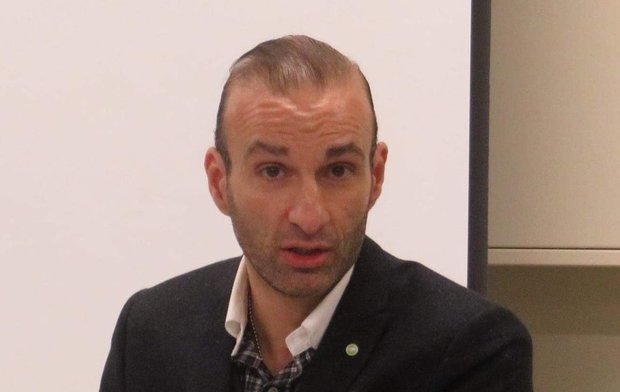Professor in Global Thought and Comparative Philosophies and Chair of the Centre for Iranian Studies at the London Middle East Institute, also adds that “The Islamic revolution spoke to those themes and made them realisable in Iran.”
He says that “The Arab revolts galvanised these sentiments further and as we speak, mass protests in Algiers are spreading in what may become a second Arab spring.”
Here is the full text of the interview:
What was the most important event in the Middle East in the last Iranian year and why?
Allow me to congratulate all Iranians and everyone who celebrates Nowruz as a global festival in the name of universal sentiments such as empathy, humanity, and love.
I deem the most important event in West Asia and North Africa the absence of decent human rights standards. I am choosing this theme because, in this Iranian year, the Islamic Republic of Iran turned 40. As such, the Iranian state has ruled the country for the longest continuous period compared to any other state in the modern history of the country. The revolution, then, was a pivotal event, not only for Iran but for the whole world. And yet, after 40 years, the demands of the revolutionaries for “esteghlal” (freedom) have not been met. I think we can all agree on that, without any unnecessary hysteria. The people of the region yearn for democracy, human rights, and social equality. The Islamic revolution spoke to those themes and made them realisable in Iran.
The Arab revolts galvanised these sentiments further and as we speak, mass protests in Algiers are spreading in what may become a second Arab spring. The point being that people want their freedoms from political control and authoritarianism. West Asia and North Africa remain the only region in the world, where the majority of countries are ruled in an authoritarian fashion. Other areas such as South America have moved from revolution to normalisation in a much more effective way.
Cubans, for instance, just had the opportunity to revise their constitution which they overwhelmingly voted for (see below). The constitutional amendments are substantial in terms of the rights that they grant. In Iran, such movements towards reconciliation will have to be systematically pursued in the near future as well.
What was the most important event in the North America and why?
The aforementioned constitutional vote in Cuba. It was adopted by 91% of Cubans and it has enshrined several fundamental laws: It limits the Cuban presidency to two consecutive five-year terms, protects private property and foreign investment, pluralised the political system by reintroducing the position of Prime Minister and bans discrimination on the basis of gender, race, ethnicity, sexual orientation, gender identity, and disability. The brother of Fidel Castro, Raul Castro, was a big champion of this immensely important development in Cuba’s post-revolutionary history.
Cuba did it without compromising the independence of the country from interventions by external powers, in particular, the Trump administration. In fact, the Cuban state seems by far more secure now, than it ever was. A rights-based approach to governance, political science teaches us, extend the sovereignty of the state because it deepens its popular legitimacy.
What was the most important event in Asia and why?
The further entrenchment of the Regional Comprehensive Economic Partnership (RCEP) which is a proposed free trade agreement between the ten member states of the Association of Southeast Asian Nations and the six Asia-Pacific states with which ASEAN has existing free trade agreements. I consider this event pivotal because it further galvanises China’s march to a great power status and a major center in an emergent multipolar international system. I expect that in the next Persian New Year the institutionalisation of the RCEP will continue apace. If this free trade area will be realised, China will be at the center of the most powerful economic zone in the world.
What was the most important event in Europe and why?
For me the most important event in Europe was the death of Karl Lagerfeld who was from my home town, Hamburg. He was a true genius - the last doyen of a generation of fashion designers that created a new form of aesthetics that will not reappear in this shape and form ever again.
Do you think that polarity of the international system will change in the near future?
We have entered a multipolar order that will continue to develop away from the United States towards Asia and to a lesser extent Latin America. Russia, China, and the European Union will entrench their positions as major poles in this newly constituted international system. The fate of Iran will depend on the ability of the ruling elites to serve as a model for surrounding states which will require freeing up the political and social system.
Interview by Javad Heirannia
MNA/TT

























Your Comment